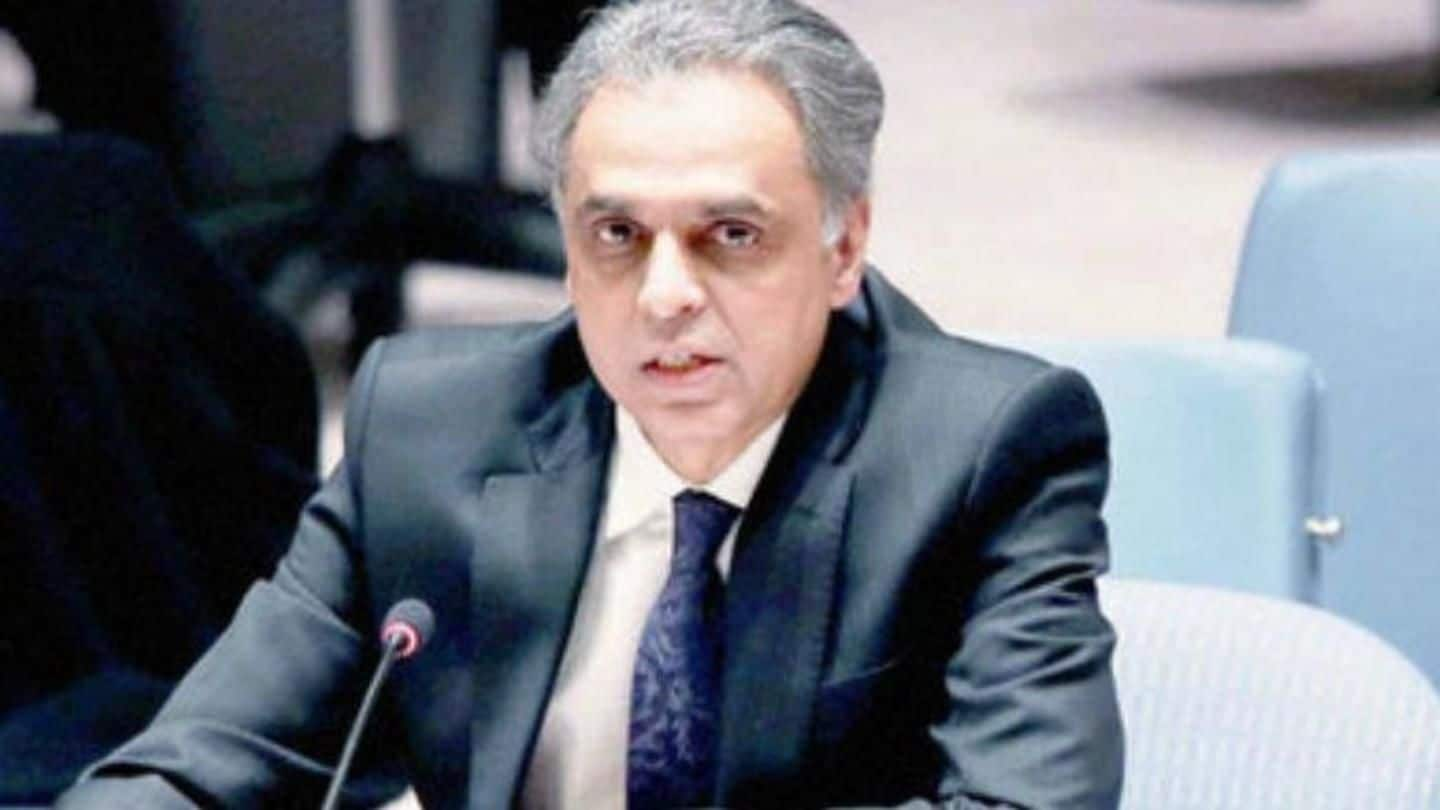
UN Security Council needs to be reformed without delay: India
What's the story
India has said that the UN Security Council needs to be reformed without delay or else it'll be left to nurse its self-inflicted wounds of "diminishing relevance" like terrorism, armed conflicts, and climate change. India's Permanent Representative to the UN, Ambassador Syed Akbaruddin, made the statement on Monday in a General Assembly Session on "Report of the Secretary-General on the Work of the Organization".
Speech
We need to fix the flaws before it's late: Akbaruddin
"Updating the current architecture of international institutions, which are so out of sync with the modern world, is imperative if new global challenges are to be met," Akbaruddin said. "We need to fix the flaws. We need to do it before it is too late. We need to do so before the technologies of the future sharpen the conflicts of the past," he added.
Notes
Global challenges increasingly straining societies, says the diplomat
Akbaruddin asserted that nations cannot pose as guardians of a status quo that no longer exists. He pointed out that during the recently concluded high-level week of the General Assembly, nations heard about pressing global challenges including armed conflicts, terrorism, large movements of peoples fleeing conflicts that are increasingly straining societies, climate change events becoming more regular, environmental challenges becoming more urgent, among others.
Warning
'Cyberwarfare, unmanned drones, combat robots shaping future of warfare'
Emphasizing that the world is awash with challenges that the current institutional arrangements are ill-equipped to handle, Akbaruddin said new technologies were increasingly changing the nature and dynamics of international conflict. Cyberwarfare, unmanned aerial drones, and combat robots are just three instances of technological change shaping the future of warfare and raising profound ethical and normative questions, said the Indian Foreign Service officer.
Quote
Referring to Internet, Akbaruddin asks about rights of individual privacy
"Similarly, there is no global approach in dealing with basic issues regarding frontier technologies," Akbaruddin said, questioning that while the Internet is becoming ubiquitous, what rights do individuals have to privacy, how should tensions between individual liberties and collective security be mitigated.
Steps
General Assembly not addressing developmental and normative aspects, notes Akbaruddin
Akbaruddin said that neither the General Assembly was addressing developmental and normative aspects nor was the 15-nation Security Council addressing the peace and security implications. In the case of frontier technologies and other areas such as climatic shifts, debt sustainability, counter-terrorism, illicit financial-flows and tackling pandemics, nations should be considering scenarios and preparing plans to prevent upheavals and taking stronger steps to mitigate risks.
Quote
There's a need of continuous attention not one-shot solution: Akbaruddin
"Many of these problems require continuous attention rather than one-shot solutions. To counter terrorism, for example, we need to establish a reliable and efficient set of controls for monitoring borders and financial-flows. Such efforts will work only if appropriate standards are widely adopted," Akbaruddin said.
Cooperation
'We cannot focus merely on exterminating bugs': Akbaruddin
Stressing that proliferating global problems demand new narratives and new forms of cooperation, Akbaruddin said international cooperation of a nature and kind not thought of before was needed to promote climate action required by the findings of the Intergovernmental Panel on Climate Change report released Monday. "We cannot focus merely on exterminating bugs while allowing life-threatening wild beasts to roam free," he pointed out.